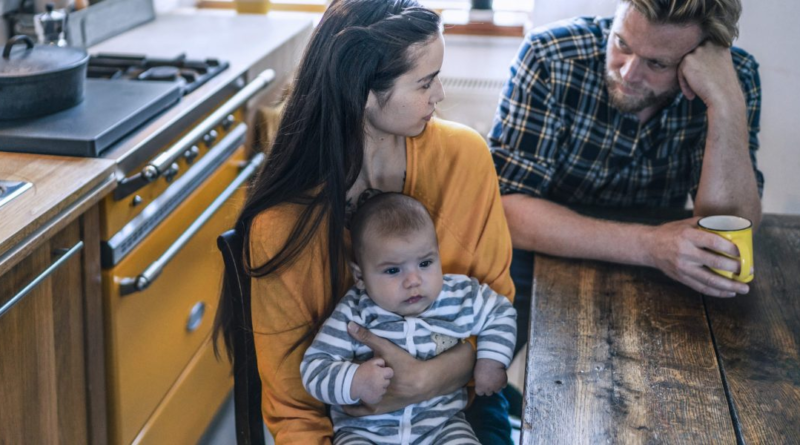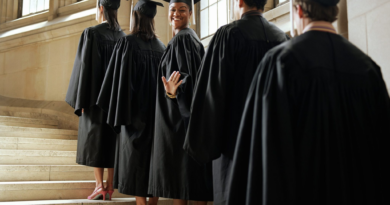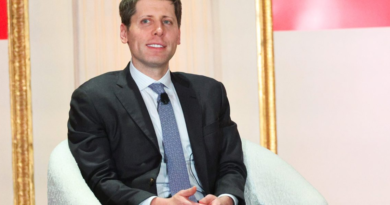'Disenfranchised' millennials feel 'locked out' of the housing market and it taints every part of economic life, top economist Mark Zandi says
The anxiety this generation feels about the prospect of never owning their own home affects their entire perception of their finances and the economy, says Moody’s chief economist Mark Zandi.
“If they feel like they’re locked out of owning a home it colors their perceptions about everything else going on in their financial lives,” Zandi says.
Millennials have long been dogged by a brutal housing market. They faced not one, but two, cataclysmic economic events—the Great Financial Crisis in 2008 and the pandemic in 2020. Both of which left them reeling financially and struggling to afford a home. The Great Recession decimated the real estate market as the economy nearly collapsed under the weight of tenuous mortgage backed securities. While the pandemic brought with it a remote work boom that caused millions of citydwellers to flee to the suburbs, sending housing prices soaring.
A failure to address the affordability crisis plaguing housing in the U.S. will mean young people, who “already feel disenfranchised,” according to Zandi, will lose faith in the economy and take their frustrations out on President Joe Biden come election day. (Fortune was speaking to Zandi in the context of his team’s analysis that predicted the 2024 election outcome based on economic outcomes.)
Bad news for Biden
“Homeownership is just unaffordable,” Zandi told Fortune. “If it looks like affordability is getting worse and their prospects of becoming a homebuyer are diminishing, that’s going to undermine Biden’s reelection bid.”
Then, last October, mortgage rates shot up to their highest levels in more than 20 years when they topped 8%. For millennials those soaring rates paired with the recent cost of living crisis seemed to make owning a home even more unlikely. Now though mortgage rates are coming down, hovering around 6.8%, which gives prospective buyers hope that the housing market may become more manageable.
When interest rates are at 6%, “people feel like they have a chance of becoming a homeowner at some point,” Zandi says. “Mortgage rates are really very critical” to that.
Although the current rate is still a far cry from the 2.6% rates in January 2021, which were among the lowest ever recorded. It’s unlikely they’ll return to those levels but they are expected to keep declining. Some estimates see them going as low as 5.5%. Other economic signs also point to improvements in the economy, as inflation falls and strong job market continues.
When paired with declines in mortgage rates in the last few months it should make things easier for millennials to afford a home—which is something they care a lot about. A December analyst note from Bank of America Research found that homeownership is more important to millennials than it was to their parents when they were the same age. One reason this specific generation places such a premium on homeownership is because it is a way for people to insulate themselves from other forms of economic turmoil.
“The goal of homeownership is increasing because of its importance as a respite from a volatile economic environment,” says John Walkup, cofounder of real estate analytics firm UrbanDigs.
The plight of the older millennial
That’s not to say it’s entirely impossible for millennials and Gen Z to buy homes. In fact, Bank of America Research analysis finds that younger millennials, between the ages of 28 and 35, were closing the homeownership gap compared to Gen X and boomers. There have been some improvements since the pandemic, with homeownership rates for young people are higher than they were in 2019, according to progressive economist Dean Baker. Yet, they remain lower than those they were before 2008 and its epic housing bust. Both figures, though, illustrate the point that millennials never fully recovered from some of the economic shocks they’ve lived through.
Older millennials especially are bearing the brunt of these multiple economic setbacks and the current affordability crisis. They found an exceptionally challenged housing market at the same time they were saddled by exorbitant student loan debts and a recession that hit right when they entered adulthood. One housing executive estimates homes are so unaffordable that incomes need to rise by 55% to keep pace with prices.
Much of the American Dream is tied up in buying a house not just because of the sentimental factors of owning a home but also because it’s a critical source of wealth building. “Historically, real estate has been a sure-shot way of unleashing wealth…especially for the middle class,” says Monisha Rana, a realtor with Coldwell Banker Warburg in New York.
The typical homeowner’s net worth is 40 times higher than someone who rents, according to the National Association of Realtors. Selling a home, especially if the value has gone up, which is likely this year considering Morgan Stanley forecasted a 5% increase in home prices, can create a windfall for families that have much of their net worth tied up in their home.
Failing to own a home can have long-term effects for an individual’s life-long financial standing.
Homeownership is about ”more deep-seated feelings around the economy, particularly for younger people,” Zandi says. “If they can’t afford to buy a home, that really undermines their general thinking about everything else, when it comes to the economy—their job, their pay, their net worth.”



